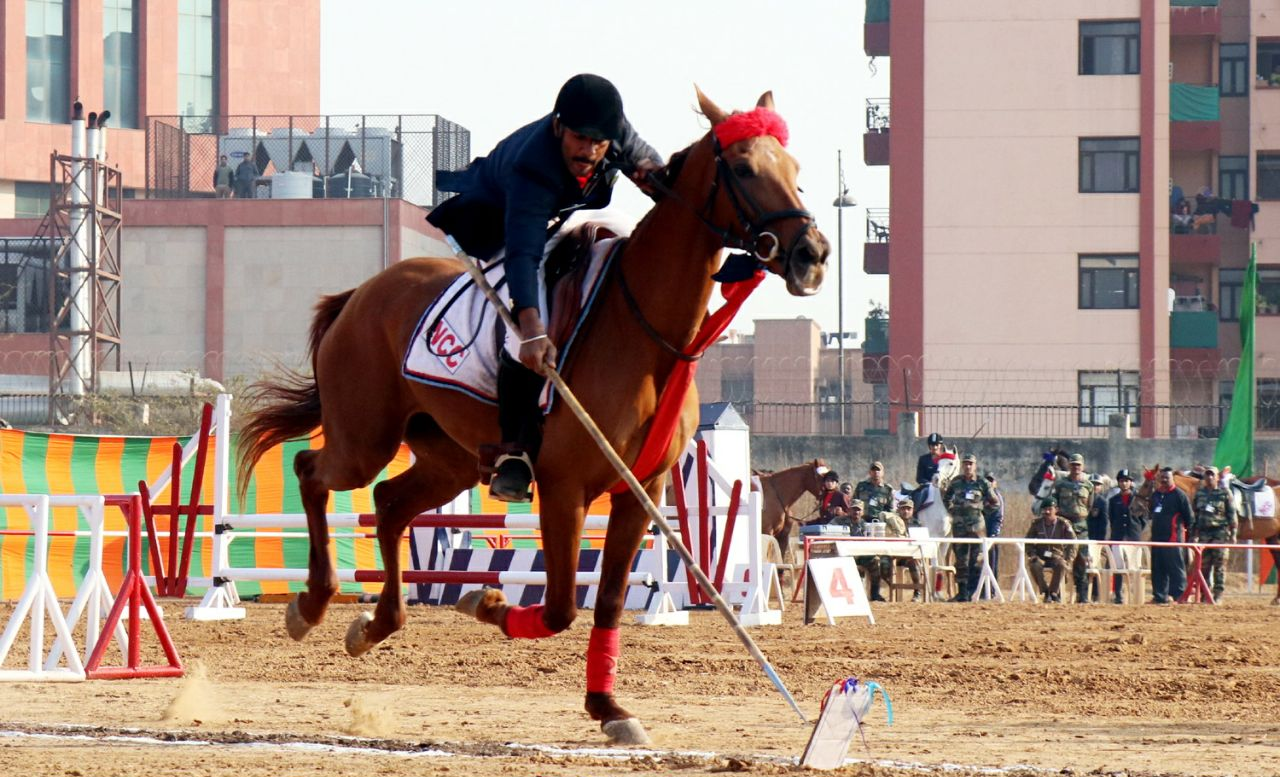College of Veterinary Science, Ludhiana
Know About the College
The College of Veterinary Science is a daughter institution of Veterinary School established in 1862 at Poona with one year course which was later upgraded as the first Veterinary College at Lahore in 1882. A part of the Lahore Veterinary College was shifted to Hisar in 1948 after partition. The College of Veterinary Science, Ludhiana was established in November 1969 on re-organization of the Punjab State and the formation of separate Haryana state at main campus of Punjab Agricultural University. The College was shifted to the Guru Angad Dev Veterinary and Animal Sciences University (GADVASU) Ludhiana in 2005. The College is a centre of regional, national and international excellence in research and learning in animal health and production. It caters to the needs of Punjab by carrying out teaching, research and extension education programmes pertaining to livestock production and health problems and has been instrumental in ushering in an era of ‘White Revolution’ in the State.
The college has highly competent and experienced faculty members who have made significant contributions in research on animal health and production and won various national and international awards. The college has implemented minimum Standards of Veterinary Education Degree Course (B.V.Sc. & A.H.) Regulations, 1993 of Veterinary Council of India and accordingly, external examination system has been introduced for B.V.Sc. & A.H. 5-year programme from the batch admitted in 1998 and onwards. The college is recognized by the Veterinary Council of India and has obtained accreditation from the Indian Council of Agricultural Research in the year 2004.
Initially, the College was established with the following six departments:
- Veterinary Anatomy & Histology (1969)
- Veterinary Bacteriology, Hygiene and Parasitology (1969)
- Veterinary Bacteriology & Virology (1969)
- Veterinary Pathology (1969)
- Veterinary Physiology (1969)
- Veterinary Pharmacology & Medicine
- Veterinary Pharmacology & Toxicology (1969)
- Veterinary Surgery & Gynaecology
- Veterinary Surgery & Radiology (1969)
New departments were started in the coming years, raising the number to twelve:
- Veterinary Clinics & Continuing Education (1988)
- Veterinary Gynaecology & Obstetrics (1976)
- Veterinary Immunology (1988)
- Veterinary Medicine (1975)
- Veterinary Parasitology (1975)
- Veterinary Public Health & Epidemiology (1988)
On implementation of VCI regolation as notified in extraordinary Gazette of India Part II, Section (3), sub-section (1) notification No.57 dated 7.2.94 from Academic session 1994-95 and onwards the number of departments was raised to 18 as detailed below:
- Department of Animal Breeding and Genetics
- Department of Animal Nutrition
- Department of Animal Reproduction, Gynaecology & Obstetrics
- Department of Livestock Production and Management
- Department of Vety. Anatomy and Histology
- Department of Vety. and Animal Husbandry Extension
- Department of Vety. Biochemistry
- Department of Vety. Clinical Medicine, Ethics and Jurisprudence
- Department of Vety. Clinical Services Complex
- Department of Epidemiology and Preventive Vety. Medicine
- Department of Vety. Microbiology
- Department of Vety. Parasitology
- Department of Vety. Pathology
- Department of Vety. Pharmacology and Toxicology
- Department of Vety. Physiology
- Department of Vety. Public Health
- Department of Vety. Surgery and Radiology
- Department of Livestock Product Technology
From academic session 2009-10 the university has implemented Veterinary Council of India- Minimum Standards of Veterinary Education for B.V.Sc. & A.H. Regolations, 2008 and the following departments were reorganized/ established:
- Veterinary Anatomy
- Veterinary Physiology and Biochemistry
- Veterinary Pharmacology and Toxicology
- Veterinary Parasitology
- Veterinary Microbiology
- Veterinary Pathology
- Veterinary Public Health and Epidemiology
- Animal Nutrition
- Animal Genetics and Breeding
- Livestock Production Management
- Livestock Products Technology
- Veterinary Gynaecology & Obstetrics
- Veterinary Surgery and Radiology
- Veterinary Medicine
- Veterinary and Animal Husbandry Extension Education
- Teaching Veterinary Clinical Complex
- Instructional Livestock Farm Complex
From academic session 2016-17 the university has implemented Veterinary Council of India- Minimum Standards of Veterinary Education - (Bachelor of Veterinary Science and Animal Husbandry - Degree Course) Regulations, 2016.
All these departments of the college have excellent laboratory facilities and adequate infrastructure for undergraduate and postgraduate teaching and research, a well-equipped veterinary teaching hospital to cater to the demands of large and small animal health care. In addition, the college also has an elite dairy herd and poultry farm which provide adequate facilities for teaching and research. This is the only veterinary college in India having three ICAR Centres of Advanced Studies in the Department of Veterinary Surgery & Radiology and Department of Veterinary Gynaecology and Obstetrics. The Department of Teaching Veterinary Clinical Complex and the Department of Livestock Production Management has experiential learning projects.
College of Veterinary Science offers (from 2016-17) the following programme of study:
- B.V.Sc. & A.H. Five and half year programme
The programme leading to the award of the B.V.Sc. & A.H. degree is designed to equip graduates with the knowledge and skills essential to a veterinary career. The programme is divided into three phases. The pre-clinical phase, undertaken in years one and two, provides education in basic sciences such as anatomy, physiology and biochemistry, as well as in animal husbandry through intramural learning. The para-clinical phase, undertaken in years three and four, includes bridging subjects between the pre-clinical and clinical phases, such as Pathology, Microbiology, Parasitology, Pharmacology and basic clinical science. The clinical phase (Surgery, Medicine and Gynaecology) starts in year four and culminates in the fifth and final year. At the end of course work the students undergo a compulsory rotating internship programme of envisaging on the job training in animal production, technology, diagnostic laboratories and hospital practice. The various departments of the College, aided by teaching veterinary hospital ensure both currency and relevance in basic and applied biological sciences through clinical practice.
Recent graduates have shown considerable satisfaction with the programme of study, as it prepared them for professional life and have developed confidence in their skills for clinical investigation and lifelong learning, in the context of general practice.
The successful completion of B.V.Sc.& A.H. programme entitles the graduates for registration with the Punjab State Veterinary Council / Veterinary Council of India as registered veterinary practitioners.
Mandate
- To help the society by providing adequate supply of trained Veterinary professionals capable of handling livestock health and production aspects including Master’s and Doctorate level specialists according to the needs of the State Government and allied agencies.
- To undertake research work in selected areas and wherever applicable following multi-disciplinary approach.
- To provide opportunities for continuing education for professionals in Veterinary Science.
- To provide consultancy and specialist services to livestock owners, government, semi-government and allied agencies
- To run “Referral” hospitals for specialized treatment of the referred livestock patients and also to provide clinical training to the students.
- To foster faculty development by providing them with opportunities to participate in appropriate training programmes, conferences, workshops, seminars, symposia etc. and avail other opportunities in exchange programmes.
- To encourage cooperation and collaboration with other departments, Colleges, Universities and Industries both nationally and international
Goals
- To produce Veterinary graduates, scientists and extension workers for promoting better livestock health by prevention of disease, increasing production and reproduction of livestock, thus improving the quality of rural life in Punjab.
Dean, College of Veterinary Science

Dr. Swaran Singh Randhawa
Address: Dean, College of Veterinary Science, Guru Angad Dev Veterinary and Animal Sciences University, Ludhiana
Email: deancovsldh@gadvasu.in
Call: +91-161-2414020
Brief Introduction :
Dr. Swaran Singh Randhawa, has joined as Dean, College of Veterinary Science, Guru Angad Dev Veterinary and Animal Sciences University, Ludhiana. Dr. Swaran Singh Randhawa is a devoted and industrious clinician,teacher as well as a researcher. He has an excellent scientific career,evidenced by his quality research and clinical papers. He has published more than 70 research papers in national and international journals. He has been honored with University Best Teacher Award for the year 2017-18. He did a pioneer work on ‘Bovine lameness’. For the first time in India, He evaluated sole thickness using ultrasonography in crossbred dairy cattle, which can be used as a selection criterion for breeding programs. He developed Hindi version of “Claw Health Atlas” for International Committee for Animal Recording (ICAR). He also standardized ‘Fast localized abdominal ultrasonography of horses’ (FLASH) for diagnosis in equine colic patients. Recently, he standardized transtracheal wash (TTW) and bronchoalveolar lavage (BAL) techniques for diagnosis in respiratory problems in equines. He also established endoscopy for diagnosis of upper respiratory tract (URT) diseases of equines at the university hospital. His research has been acclaimed nationally and internationally (Finland and New Zealand) with more than 70 presentations in conferences. Presently, He is part of DBT Canine Research Centre and working on the project ‘Elucidating the etiology of chronic gastro-enteropathies in dogs’. He guided 10 postgraduate students. He is currently supervising 2 M.V.Sc and 2 Ph.D student. Presently, he is Editor of Indian Journal of Veterinary Medicine and member of the National Academy of Veterinary Sciences (India).
Former Dean
| Sr. No. | Name | Duration on the post | Date of Retirement | Photograph |
|---|---|---|---|---|
| 1. | Dr. Ajit Singh | 21.05.1970 to 21.12.1973 | 30.11.1971 |  |
| 2. | Dr. Bakhsish Singh Gill | 21.09.1974 to 19.06.1983 | 30.09.1985 |  |
| 3. | Dr.Balbir Singh Paul | 20.06.1983 to 11.03.1985 | 31.08.1985 |  |
| 4. | Dr.Balwant Singh | 12.03.1985 to 15.11.1993 | 31.01.1999 | 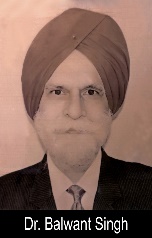 |
| 5. | Dr.Sohan Singh Rathore | 16.11.1993 to 31.12.1993 | 31.12.1993 | 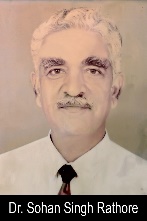 |
| 6. | Dr.Khusdev Kumar Baxi | 01.01.1994 to 31.12.1997 | 30.04.1998 | 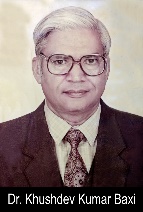 |
| 7. | Dr. Rajya Pal Saigal | 06.01.1998 to 17.01.1999 | 31.05.2003 | 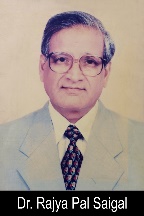 |
| 8. | Dr. Jugraj Singh Dhillon | 18.01.1999 to 30.06.2000 | 30.06.2000 | 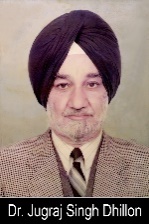 |
| 9. | Dr.Rajya Pal Singh | 01.07.2000 to 31.05.2003 | 31.05.2003 | 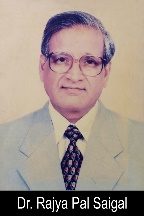 |
| 10. | Dr. Mohinder Singh Oberoi | 20.06.2003 to 17.07.2005 | 31.08.2006 | 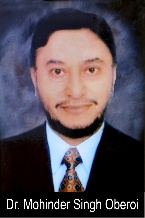 |
| 11. | Dr. Dev Raj Sharma |
18.07.2005 to 30.01.2006 24.04.2006 to 30.04.2006 |
30.04.2006 |  |
| 12. | Dr. Onkar Singh Parmar | 31.01.2006 to 23.04.2006 | 31.05.2008 |  |
| 13. | Dr. Kirpa Shankar Roy | 01.05.2006 to 27.12.2006 | 31.12.2006 | 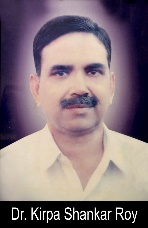 |
| 14. | Dr. Simrat Sagar Singh | 28.12.2006 to 10.05.2011 | 31.03.2018 | 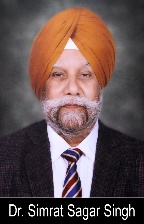 |
| 15. | Dr. Harpal Singh Sandhu | 11.05.2011 to 11.05.2016 | 30.11.2019 | 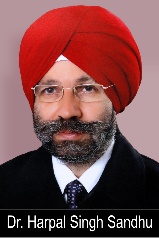 |
| 16. | Dr. Simrat Sagar Singh | 12.05.2016 to 27.09.2016 | 31.03.2018 | 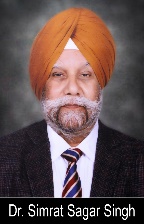 |
| 17. | Dr. Parkash Singh Brar | 27.09.2016 to 22.09.2020 | 31.01.2026 |  |
Facilities
- Main Veterinary College Building Complex
- Silver Jubilee Block
- Clinical diagnostic laboratory
- Semen process and Embryo transfer technology laboratory
- Animal Science Complex
- G S Sidhu Animal Nutrition Centre
- Small and Large animal Hospital/Clinic
- Six Lecture Halls with LCD facility
- UG/PG Laboratories
- Examination Hall –seating capacity of 200
- Computer Centre
- Auditorium
- R&V NCC Sqn.
- Experimental and Instructional Herds
- Post Mortem Hall
- Livestock Farms
- Poultry Farm
- Hostels for boys and girls


It was in the year 1984, 1 Punjab R & V Squadron NCC was made operational in the campus. The unit has its own riding school comprising of riding arena and facilities for equestrian activities like show jumping, Tent Pegging, Dressage etc. The Unit is commanded by a Regular Army Officer of the rank of Lt. Col and Above of Remount and Veterinary Corps (RVC) and Five other regular army personnel as supporting staff. These regular army personnel get posted out every two years and are replaced by new ones. As per Veterinary Council of India, Remount and Veterinary Corps NCC programme is compulsory for all undergraduate students of College of Veterinary Science. The students (except NRI/OCI/Foreign Nationals) admitted to B.V.Sc. & A.H. programme at College of Veterinary Science, Ludhiana have to register for compulsory R & V Sqn. NCC course each of 0+1 non-credit for the first three years (NCC I, II & III). They have to clear all the three NCC courses and attend at least one Annual Training Camp to complete their degree requirements. Every year three students who get trained in horse riding participate in Republic Day Camp (RDC) at New Delhi where they compete with the riders of 17 different directorates from all over India in different equestrian sports. The riders from the unit have won many laurels at RDC like Best Rider trophy, Best Tent Pegger, Sharma Trophy and various medals. Apart from RDC, the cadets are also made to compete in various horse shows which are conducted by National and State Equine Federations.
MOTTO OF NCC
- Unity and Discipline
AIMS OF NCC
- To Create a Human Resource of Organized, Trained and Motivated Youth, To Provide Leadership in all Walks of life and be Always Available for the Service of the Nation.
- To Provide a Suitable Environment to Motivate the Youth to Take Up a Career in the Armed Forces.
- To Develop Character, Comradeship, Discipline, Leadership, Secular Outlook, Spirit of Adventure, and Ideals of Selfless Service amongst the Youth of the Country.
CORE VALUES OF NCC
- A sense of patriotic commitment to encourage cadets to contribute to national development.
- Respect for diversities in religion, language, culture, ethnicity, life style and habitat to in still a sense of National unity and social cohesion.
- Abiding commitment to learn and adhere to the norms and values enshrined in the Indian Constitution.
- Understanding the value of a just and impartial exercise of authority.
- Ability to participate in community development and other social programme.
- A healthy life style free of substance abuse and other unhealthy practices.
- Sensitivity to the needs of poor and socially disadvantaged fellow citizens.
- Inculcating habits of restraint and self-awareness.
- Understanding the values of honesty, truthfulness, self-sacrifice, perseverance and hard work.
- Respect for knowledge, wisdom and the power of ideas.
Two Teachers from College of Veterinary Science are nominated as Associate NCC Officers (ANO). They undergo full Basic Military Training at RVC centre and College, Meerut.
| Sr. No. | Name & Designation | Department | Phone & Email |
|---|---|---|---|
| 1. | Capt. (Dr.) Nittin Dev Singh, ANO and Associate Professor |
Department of Veterinary Pathology, COVS, GADVASU, Ludhiana NCC Commission no.: NCC/12110181 |
9780852132 drndsingh@gmail.com |
| 2. | Capt. (Dr.) Prem Prakash Dubey, ANO and Scientist |
Department of Animal Genetics and Breeding & Directorate of Livestock Farms, COVS, GADVASU, Ludhiana. NCC Commission no.: NCC/12110303 |
9888802905 prakashagb@gmail.com |
ACTIVITIES OF CADETS OF 1 PB R &V SQUADRON NCC LUDHIANA
|
Cadet of 1 Pb R & V SQN NCC in action at Republic Day Camp |
Swachh Bharat Abhiyan |
Cadets doing awareness campaigns for general public regarding cleanliness |
|
Show Jumping |
Team of Riders with Medals at State Horse Show |
Swachh Bharat Abhiyan:Cleaning Public Places |
|
Educating public regarding waste management |
Best Marching Contingent at Athletic Meet of GADVASU |
Trick Jumping during Athletic Meet of GADVASU |
|
Pilot Cadets withADG NCC in the Unit Premises |
Cadets Escorting the Chief Guest for Athletic Meet |
Tree Plantation Drive |
Faculty Detail
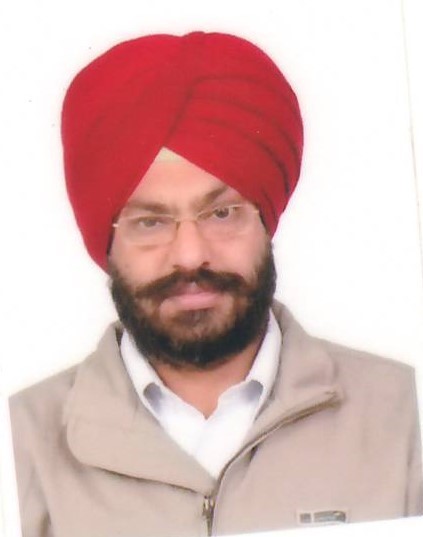
Dr. Jaspal Singh Lamba
Designation : Principal Scientist
Contact Address : Department of Animal Nutrition, College of Veterinary Science, Guru Angad Dev Veterinary & Animal Sciences University, Ludhiana, Punjab 141004
Telephone : 0161-2414040
Mobile : 094172-91044
Email : jaspalsinghgadvasu@rediffmail.com
Academic Credentials
- Ph.D
Teaching appointments
- Research, Teaching, Extension, Administration, Consultancy
Other appointments
- Ruminant Nutrition
Area of research
- Ruminant Nutrition/Fodder evaluation
Ongoing projects
|
Ongoing
Projects |
PI/Co
-PI |
Name |
Funding Agency |
Year
of Start |
|
1 |
PI |
Improvement of forages and establishment of
forages .C (a):AN -5 |
State
Govt |
2000 continuing |
|
2 |
Co-PI |
Estimation of methane
emission under different feeding systems and development of mitigation
strategies; Budget: 90.48 Lac |
ICAR, New Delhi |
2007-2020
|
|
3 |
Co-PI |
AICRP on “ Feed Resources
and Nutrient Utilization for Raising the Animal Productivity
|
ICAR |
2011-15 |
|
4 |
CO-PI |
Energy requirement during
transition period in crossbred cows |
RKVY |
2012-14 |
|
5 |
Co-PI |
Evaluation of free choice
mineral and salt licks in lactating
dairy cows |
Akzonobel Neitherlands |
2013-14 |
|
6 |
Co-PI |
Studies on the nutritional
Requirements of male buffalo Calves for meat production |
RKVY |
2013-15 |
|
7 |
CO-PI |
Studies on the silage based
TMR feeding to high yielding dairy animals |
RKVY |
2014-16 |
|
8 |
CO-PI |
Studies on the genetic
Parameters of Residual Feed intake in Cross bred Cattle |
RKVY |
2014-16 |
|
9 |
Co-PI |
Towards Climate Resilient Livestock
Production System in Punjab; Budget
486.48 Lac |
Ministry of Environment Forest and Climate Change,
GOI |
2016-2022
|
|
10 |
Co-PI |
Breeding for high yielding and better quality fodder
cultivars in maize 80.0 lacs |
ICAR |
2017-23 |
|
11 |
CO-PI |
Nutritional evaluation of straw based complete
rations using locally available cereal milling by-products in the diet of
ruminants 25 .0 lacs |
RKVY |
2018-2020 |
|
12 |
Co-PI |
A study on utilization of
paddy straw after nutritional improvement of animal production; Budget: 30.0 Lac |
RKVY |
2020-2022 |
|
13 |
PI |
Integrated Livestock
farming Systems for Sustainable Livelihood of Small and Marginal farmers
85.lac Azolla -Duckweed-dairy |
RKVY |
2020-2021 |
|
14 |
CO-PI |
Study on the effect of
sodium sulphate on the performance of lactating dairy cows 14.0 lacs |
Aditya Birla group
|
2021-23 |
|
15 |
Co-PI |
Effect of organic acids on
aerobic stability of maize silage |
Trouw Nutrition India Private Limited |
2021-23 |
|
16 |
Co-PI |
Diversification of genetic base for stress tolerance
and fodder traits in Maize |
ICAR |
2022 continuing |
|
17 |
PI |
Effect of feeding paddy straw silage on invitro and
productive performance of lactating buffaloes12.15 lacs |
NDDB-MILKFED |
2023 continuing |
Research honours awards
- First prize for the oral presentation “Effect of monensin on the milk production, milk composition, rumen metabolism and blood biochemical profile in crossbred cows By R.S. Grewal,* J.S. Lamba, C.S. Ahuja1 P. Malhotra2 , and N. Tyagi in International Conference on sustainable Agriculture for food and livelihood security, November 27-29, 2012.
- Recommendations on Maize-berseem-bajra and Maize-berseem-maize+cowpea organic fodder cropping systems Approved in 226th meeting of REC of PAU held on 23.11.2012
- Best poster presentation award in the Technical Session Feeds,Feeding and Nutrition in the XI Biennial ANA Conference 2018 on Reorienting Animal Nutrition Research in the Perspective of Farmers Welfare held at BiharAnimal Sciences University,Patna,India during November19-21,2018
- Released New bajra Fodder variety ( PBN 342-multicut) which was approved in Research Evaluation Committee (272th meeting) PAU for irrigated areas released in the Punjab state during 2018-19 on dated 8/2/2019 -part of MOU between Guru Angad Dev Veterinary &Animal Sciences University & PAU Ludhiana
- Certificate of appreciation for developing new technology and its commercialization on annual function day of Guru Angad Dev Veterinary &Animal Sciences University dated 29/5/2019
- Developed New Fodder oats variety OL-12(OL-1802-1) single cut which was approved in Research Evaluation Committee (268th meeting) PAU for release in the Punjab state during Rabi 2018-19 on dated 31/7/2018 -part of MOU between Guru Angad DevVeterinay &Animal Sciences University &PAU
- Got Certificate of appreciation at 10th Asian Buffalo Congress 2021 ,Nepal.
- Team Award” during 73rd Republic Day Celebration Function, GADVASU, Ludhiana on 26.01.2022
- Got best poster award at ISBD symposium on “ Scientific interventions to Address Challenges for Sustainble Buffalo Production on Dec 10-11 2021buffalo conference at GADVASU, Ludhiana
- Reviewer Excellence Award by ARCC Journals ( Agricultural Research Communication centre) on dated 30/9/2021
- Appreciation Award-2018, worthy Vice Chancellor, GADVASU, Ludhiana for commercialization of technology to Markfed, Punjab
No of publications
| Research: 90 | Extension: 02 | Books: Nil | Manuals: 01 |
|---|
Publication
- Harneet Kour , Ravinder Singh Grewal1, Prahlad Singh , Jaspal Singh Lamba , Jasmine Kaur and Shashi Nayyar. 2024. Influence of Dietary Cation-Anion Differences (DCAD) on Nutrient Intake, Milk Yield and Metabolic Parameters of Transition Buffaloes. Journal of Buffalo Science, 2024, 13, 10-23
- Singh K, Oberoi HK, Dhakad AK, Lamba JS and Gill RIS (2023) Effect of phenophases on nutritive value, fodder quality and digestibility of fourteen ecotypes of Moringa oleifera in subtropical climate. Range Management and Agroforestry .44(1) : (NASS 6.60)
- K. Subbaiah, J.S Lamba*, Jasmine Kaur, R.S Grewal, Sandeep Kaswan1 and M.D Ansal 2023. Effect of Partial Substitution of Conventional Protein Source with Duckweed on Digestibility and Nitrogen Retention in Beetal Goat Indian Journal of Ecology 50(5) (SI): 1828-1832.
- Jaspreet Kaur , Meenakshi Goyal , Jaspal Singh Lamba and Rajiv Kumar Agrawal .2022 Inclusion of sugarcane tops and additives influence nutritional quality and fermentation characteristics of mixed silage prepared with rice straw. Range Management .and Agroforestry 43 (2) : 309-316( NAAS 6.60)
- JS Sidhu, RS Grewal, JS Lamba, Chanchal Singh, and APS Sethi.. 2021. Effect of Conjugated Linoleic Acid (CLA) Supplementation during Transition Period on the Nutrient Intake, Milk Production and Milk Efficiency in Crossbred Cows. Asian Journal of Dairy and Food Research 40(2): 181-184 (NAAS 5.68)
- Gurpreet Kaur. Sandeep Kaswan. Chanchal Singh, Mandeep Singla , Amit Sharma and Jaspal Singh Lamba .2021. Performance and welfare status of stable and regrouped beetal does fed at hexagonal vs linear feeder. Indian Journal of Animal Sciences 91 (11): 957–964. (NAAS 6.32)
- Gurpreet Kaur, Sandeep Kaswan,Mandeep Singla, Amit Sharma and Jaspal Singh Lamba.20121. Behaviour of beetal does and bucks at linear vs hexagonal feeder with special reference to homologous regrouping. Applied Animal Behaviour234 (2021) 105210 (NAAS 8.45)
- Lamba JS, Wadhwa and Bakshi MPS . 2020. In Vitro Methane Production Potential and In Sacco Degradability of Non-Leguminous and Leguminous Straws and Stovers. Animal Nutrition and Feed Technology (2020) 20: 121-130 (NAAS 6.38)
- Lamba JS, Wadhwa and Bakshi MPS.2020. Invitro Methane production potential and insacco degradability of non -legumious and leguminous straws and stovers. Animal Nutrition and Feed technology 20: 121-130. ( NAAS 6.38
- Lamba JS, Wadhwa and Bakshi MPS . 2019. Impact of level of rumen undegradable protein on in-vitro methane production and in-sacco degradability of concentrate mixtures. Livestock Research for Rural Development 31(3)

